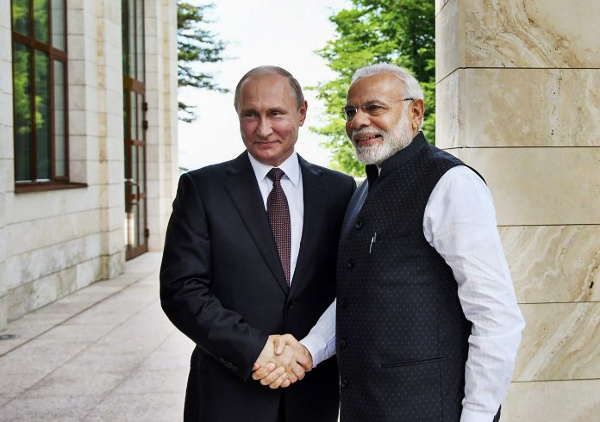India seems to be expanding the scope of its Act East policy aimed at engaging the high-growth economies of South-East Asia, bringing Russia into its ambit. The move seems aimed at reassuring Moscow that the Indo-Pacific concept is not aimed at limiting the influence of Russia and China in the region.
At a briefing in Kyrgyzstan’s Bishkek on Thursday, foreign secretary Vijay Gohkale spoke of how India and Russia were looking to expand collaboration in Russia’s Far East. This was an issue, he said, that figured in Prime Minister Narendra Modi’s conversation with Russian President Vladimir Putin in Bishkek on the sidelines of the regional Shanghai Cooperation Organisation summit. “The Russian Far East is extremely resource-rich, besides oil and gas, it has a number of other minerals, it has timber and this is an area in which we would like to work with Russia because Russia is also an important country in the Pacific region and this is part of our Act East policy. So this is something that we are going to lay special emphasis on,” Gokhale told reporters in Bishkek.
Including Russia in India’s Act East policy framework would serve to reassure Russia on New Delhi’s Indo-Pacific strategy, said P.S. Raghavan, former Indian ambassador to Russia. “It is gently telling Russia that India’s Indo-Pacific strategy is not anti-Russia strategy,” Raghavan said, pointing to many reported remarks by Russian foreign minister Sergei Lavrov criticising the concept. In one instance in February, Lavrov was quoted as saying by Russia’s Tass news agency that the Indo-Pacific was an “artificially imposed concept” that “Washington has started advancing together with Japan and Australia with an apparent goal of containing China and involving India in military and political and maritime processes.” Raghavan said India’s Indo-Pacific strategy was aimed at creating an area of cooperation. “It seeks to create forces in the Indo-Pacific that balance the China’s domination in the region. It (Gokhale’s remarks) is therefore important to impress on Russia that this (Indo-Pacific concept) is not against Russia in anyway,” he said.
According to Kanwal Sibal, another former ambassador to Russia, Gokhale’s comments could also be seen as a signal to the US “that we maintain our options and should not be seen by others as exclusive partners of the US in this region.”
Russia’s wariness over the Indo-Pacific strategy has seen it drawing closer to China, something that India has been eyeing with unease. Russia’s pivot to China started in 2014 following the US and European Union imposing sanctions to isolate Moscow after its annexation of Crimea. Earlier this month, Chinese President Xi Jinping undertook a three-day visit to Moscow with Putin describing bilateral relations as “probably (having) reached the highest point in their entire history and continue to develop.” The closeness in China-Russia ties has also seen Moscow reach out to Pakistan—something that has triggered concerns in New Delhi.
Source:LM
Image Source:The Print
You may also like
-
IAF Aircraft Set Course For Exercise Eastern Bridge VII At Oman
-
India-us Working Together In Areas Like Critical Minerals, Supply Chains And Advanced Technologies: Shri Piyush Goyal
-
Defence Secretary to co-chair 5th India-Philippines Joint Defence Cooperation Committee meeting in Manila
-
2nd India-Japan Finance Dialogue held in Tokyo on 6th September, 2024
-
Prime Minister, Shri Narendra Modi welcomes Crown Prince of Abu Dhabi
